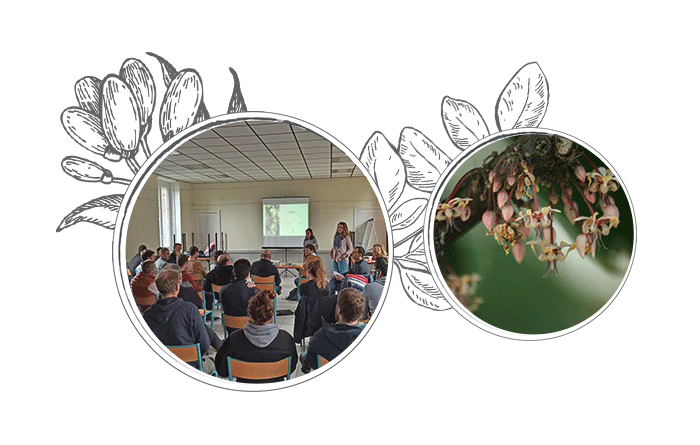Repositioning corporate strategies on the Human, Ecological and Climate Transition

Definition, context
In order to meet ESG standards, and above all the enormous challenges of the ecological and climate transition, a company needs a clear and ambitious plan to create a positive impact on its direct and indirect stakeholders. This requires upstream thinking and the establishment of a reference situation (“baseline”). Then comes the co-creation of objectives that must create a link between the company’s global strategy, the challenges of our time, and the concrete reality of operations on the ground, a link rarely made in traditional approaches. For the most forward-thinking companies, this can be an opportunity to truly reposition the core business, with the individual and collective changes that this requires.



Your needs
To be in compliance with new ESG norms and standards
to guarantee the long-term sustainability of your company
Innovate and demonstrate leadership
through your environmental and social commitments
Build the vision of the future
with your team to which you wish to contribute to bring meaning and coherence to their work
Build an operational plan
to achieve this vision
Evaluate and value the actions carried out
while avoiding any risk of greenwashing
to guarantee the long-term sustainability of your company
through your environmental and social commitments
with your team to which you wish to contribute to bring meaning and coherence to their work
to achieve this vision
while avoiding any risk of greenwashing
Kinomé's offer
Based on a global vision, and on highly-developed knowledge of the human and environmental stakes of the field, Kinomé accompanies you in the strategic repositioning of your company facing the challenges of the ecological and climatic transition.

Identification of your purpose (raison d'être), mission and theory of change

Co-creation of a logical framework
transforming the theory of change into an operational plan, with its indicators of results, effects and impact

Co-creation of an MRV (Monitor Review Verify) plan

Development of your Sustainable Development, Climate, Forestry and Biodiversity strategies

Development of your Sustainable Procurement strategy in raw materials

Our references
Les Prés Rient Bio (France)
- Identification of the brand’s raison d’être and support for a strategic repositioning, from “best in class” to a driver of transformation in the dairy industry.
- Diversification of this raison d’être into social and societal commitments, concretized by a social impact study with the dairy farmers who supply the brand and the creation of a progress plan focused on improving the well-being of the farmers
- Co-creation and integration of extra-financial performance indicators in the company’s dashboards
Baja Aqua Farms (Mexico)
Accompaniment in the definition of the raison d’être of this pioneering sustainable fishing company :
- Co-creation of the vision and theory of change with the team
- Formalization of the corporate sustainable development strategy
- Alignment of the activities and medium-term commitments with this vision (logical framework)
Barry Callebaut (international)
- Field identification of the basic needs of planters and evaluation of the impacts of existing Sustainable Development programs (Ivory Coast)
- Review of the legal frameworks of the main “origin” countries (Africa, Latin America, Asia)
- Development of a “forest positive” strategy (a first in the industry) including a global narrative, intervention axes and methods, deployment schedule, indicators etc.
Testimonials
We started working in the exotic fruit sector. Even before talking about expanding to other sectors, we rapidly focused on the human sector and affiliation with Danone.”



